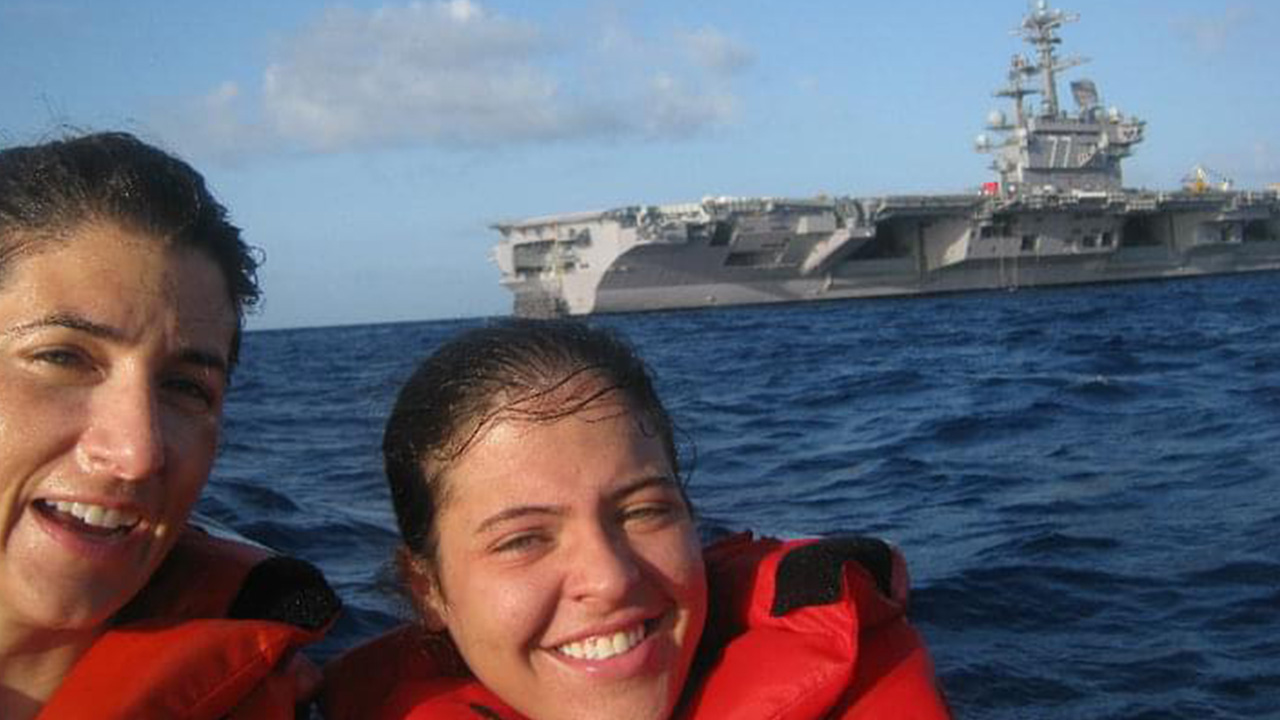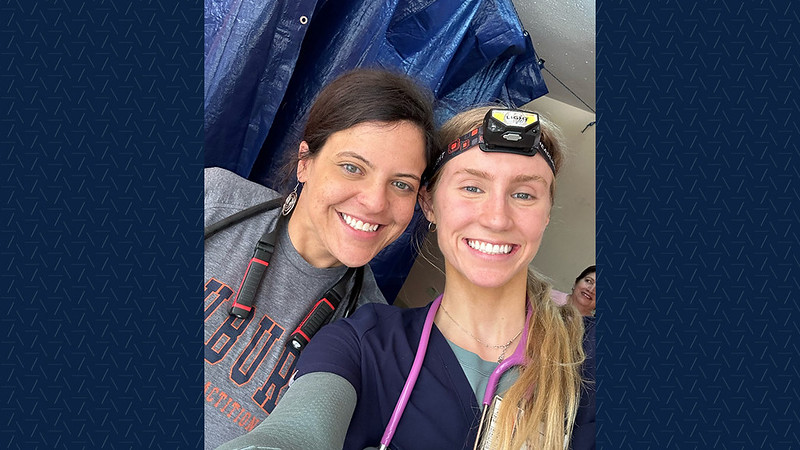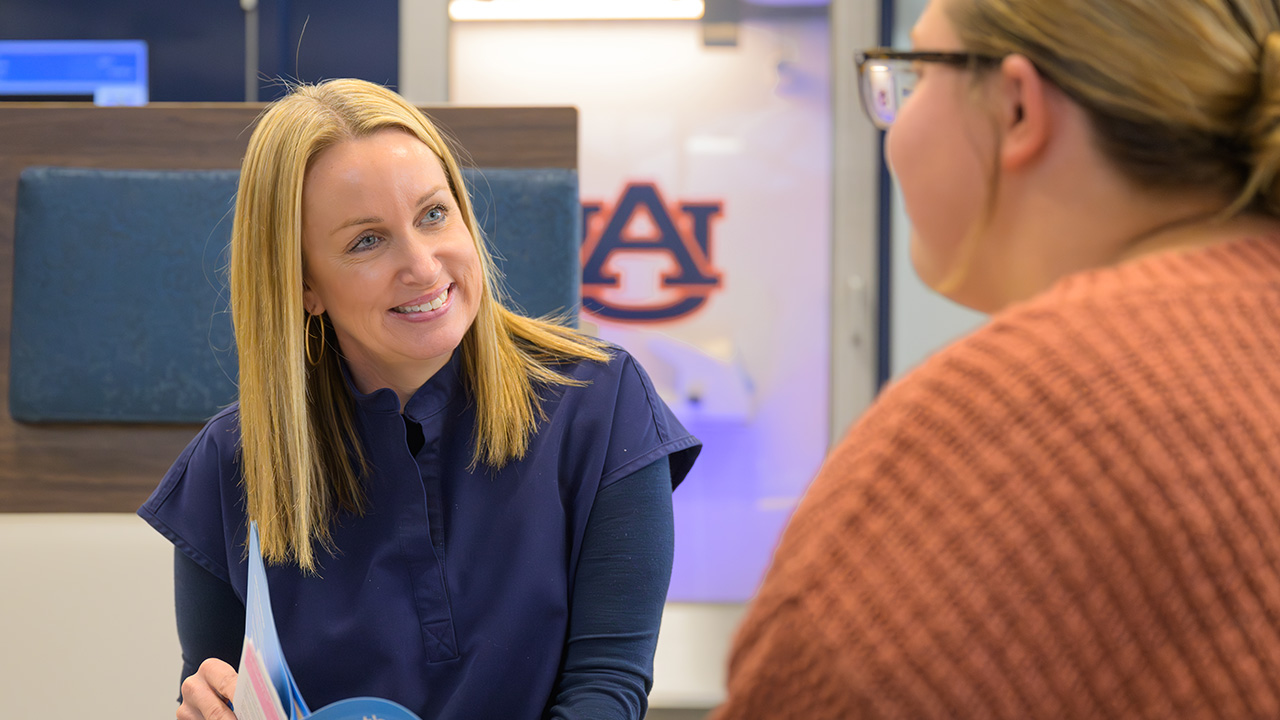content body
Nurse practitioner Amy Pridemore currently cares for patients from a wide range of backgrounds, and she feels her time serving in the U.S. Navy prepared her for the work she does today.
“In the Navy, I took care of foreign diplomats, Cuban refugees, sailors from Nigeria and sailors from Michigan,” she said. “I cared for patients from unique backgrounds and cultures, and that helped me improve my communication style and care philosophy, setting the foundation for the clinician that I am today. I feel like I made a difference in the Navy, and it’s a privilege to have the opportunity to continue that at Auburn.”
Pridemore, a faculty member in Auburn’s College of Nursing, brings a varied background to the teaching, outreach and service she does daily, focusing her efforts on providing primary care to underserved populations.
Pridemore spent 13 years in the Navy, serving in military hospitals, primary care clinics and on the USS George H. W. Bush, a massive naval aircraft carrier. After resigning her commission as a lieutenant commander, she earned a Master of Science in nursing from Auburn and did most of her rotations in a military hospital. She was close to graduation when a faculty member suggested she get out of her comfort zone by caring for a different population.
“At first, I was frustrated because I had to secure a new location,” she said. “But fortunately, I ended up doing clinical rotations in Grove Hill, Alabama. I immediately fell in love with the patients and knew I was meant to be a rural nurse practitioner.”
From there, Pridemore’s passion for rural health only grew. She returned to Auburn to earn a Doctor of Nursing Practice and now teaches students in the Nurse Practitioner program how to practice in a wide variety of settings.
In addition to teaching, Pridemore serves as a member of Auburn’s Rural Health Initiative and supervises students at interprofessional education (IPE) clinics and on the East Alabama Mobile Health Unit. She is hoping to soon secure a mobile health unit, to be shared with other health-related disciplines, that can travel to rural counties throughout the state. Pridemore’s newest assignment is working one day a week at the Boykin Community Center in Auburn, providing primary care and building relationships within the community.
Despite her busy schedule, Pridemore makes time to go back to Grove Hill every few weeks. She sees up to 40 patients a day there, with long-time residents making appointments just to visit and catch up with her.
“Sometimes people come in because they’re sick, and sometimes they just want to talk to someone who will listen, and that is primary care,” she said. “Primary care is meeting whatever needs there are at that moment. Whether it’s treating you for being sick, giving you info on how to be well or just listening, we do a little bit of all of it.”
Pridemore recently led a group of nursing students on a trip to Ecuador for the third consecutive year. She oversees graduate students as they care for patients, many of whom are women and children, while undergrads provide patient education, triage patients and assist providers with patient care. She is happy to be serving others, but she knows this annual trip also provides students with invaluable learning opportunities.
“It is important to work with patients who don’t have all the resources,” she said. “It really makes you refine your skills and adapt to be a stronger provider. We’re currently revising our graduate curriculum, and one of the things we’re working on is teaching students how to understand marginalized patients and communities who don’t have the same access to care as others.”
Whether it’s on a ship in the middle of the ocean, a tiny clinic in a rural town or back at home in Auburn, Pridemore illustrates for her students the importance of providing primary care for all.
“If we’re truly going to make the health of Alabama better, we have to figure out how to improve the health of marginalized populations,” she said. “And the way you do that is to meet them where they are, whether it’s after hours, through telehealth or by utilizing a mobile bus.”










